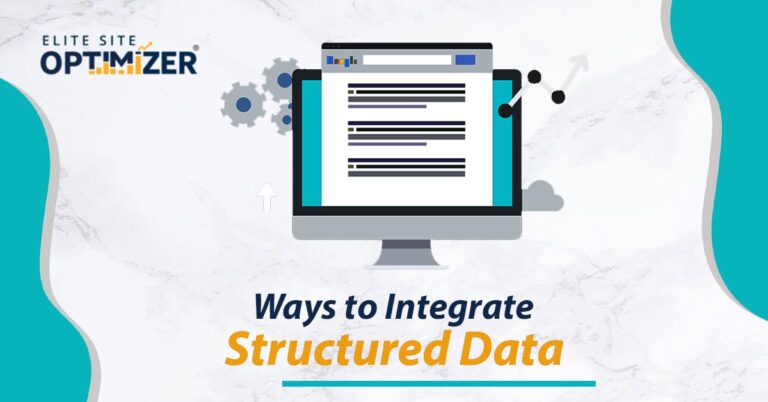Google focuses on providing the most relevant search results to its users. With changing priorities, people have begun to use the “nearby me” option extensively. If you are looking for a mobile accessories shop, you will not simply key “mobile shop”. Your search phrase will be something similar to “mobile shop + the location”. This is where location based SEO comes into the big picture. Previously, businesses were inclined to only specific regions for targeting sales. With the expansion and augmented reach of businesses, the need for a broader SEO strategy has become mandatory.
Let us read on to know more about localized SEO and how to go about it.
Google estimated that 86% of business information is looked for on Google maps.
Google’s latest algorithm update; the Google Possum and Google 3-pack actively recognizes location-targeted content on websites and rewards them accordingly. Such being the importance of locations, SEO with this regard is hard to be overlooked. A strong location based SEO approach in place has emerged as the key to provide the right information to visitors.
The significant aspects to maximize your local based SEO are:
The Google My Business account:
The Google My Business account enables business owners to have complete control over their listings on web. This is a free set-up account which includes the name, hours of operation, contact info, website info and so on. Relevant photographs are put by the business owners. This account is pivotal to avoid irrelevant content from coming up against your web search results
Maintaining location based websites:
This is probably the most important aspect of location based SEO. Create location based content and also a separate website for every location you are targeting. Make sure you do not dump all the information on your homepage. You should also be necessarily including details such as:
- The particular location’s address, name and phone number
- Content targeting that location
- Embedded Google map
- Local landmarks and significant areas to find your location
- Comments and reviews from customers pertaining to that location
- Location specific meta descriptions and title tags
- Images relevant to the location
An appropriate website optimizer tool could be employed to gauge the performance based on location specific keywords. Using a keyword rank tool can provide better inputs in zeroing down the apt keywords and framing the content. Furthermore, a local business schema can help in displaying the relevant business hours and other information on search results.
-
Hreflang implementation:
There are scenarios when a page simply replicates in different languages. Here, specifying the rel=”alternate” hreflang in HTTP header and XML sitemap will help. This will convey to Google that they are similar pages in various languages. If not specified, Google may not relate these pages impacting the SEO keyword ranking of these web pages.
Read also: Contribution of Hreflang element in multilingual website
Add location based URLs to My Business page:
Specifying the location based URLs on the MyBusiness page adds greater value to your SEO ranking. Users will be directly able to access the particular information of the location they desire rather than combing through multiple pages to obtain the information they need. Google crawlers index location specific web pages and provide higher rankings due to the improved customer experience it provides.
There are few guidelines which need to be followed during this process which are:
- Maintaining consistency of names: The names which have been listed need to be consistent across the pages. For example if you have named a page as “home page” it cannot be also named “home page at Canada”.
- Consistency in categories: All the locations should include at least one category to represent the business as a whole. However, this is ruled out if you focus on completely diverse businesses based on locations.
Read also: Does local SEO impact your local ranking?
NAP information:
NAP is your name, address and phone number. You should ensure that this information is credible and consistent on all your websites. Google verifies this information across pages like Yelp and Yellow pages. If it finds the information valid, you rank higher on SEO. It is unlikely that a spam website would have all this information correct. So keep up this consistency and earn those extra rankings.
Google ads based on location:
Simply pushing out bulk marketing messages is not going to help you when it comes to location based SEO. You will need to work on every location separately and target these users with different perspectives. Location based ads will help you reach out and focus on your target audience. Using geo-targeting will help you send ads to users of only a particular geographical area. Thus, this way you improve relevancy, improve customer experience, and hence potential conversions.
Using Google MyBusiness insights:
Google has been contributing its bit with location specific SEO. The Google My Business insights work when you have a MyBusiness account. With this you could search for valid information on how people have tried to look for your business with specific keywords. This particular dashboard is particularly impactful with multiple locations. You are able to monitor all these details under a single dashboard. You can also drill down for information like:
- How users searched for your business?
- What kind of listing do your customers prefer? Is it search listing or listing on maps?
- What kind of actions have your customers performed? Browsing your website, responding to CTAs and so on.
Manage location based reviews:
Though businesses have a cumulative feedback system in place, a location specific feedback mechanism could add enormous value to your SEO. Try to deal with negative reviews with regard to a particular location and ensure that they have been dealt with. Hence, Including call-to-actions on physical stores and specific web pages will encourage customers to leave behind their valuable feedback. Make sure that negative reviews are handled appropriately and the customer is intimated personally after concerns have been rectified.
Conclusion:
To summarize, On the whole though location based SEO consumes a bit more of your time and effort, it does really pay off at the end with a highly performing website and ranking which stands out.
Related Posts
Post does not have featured image





